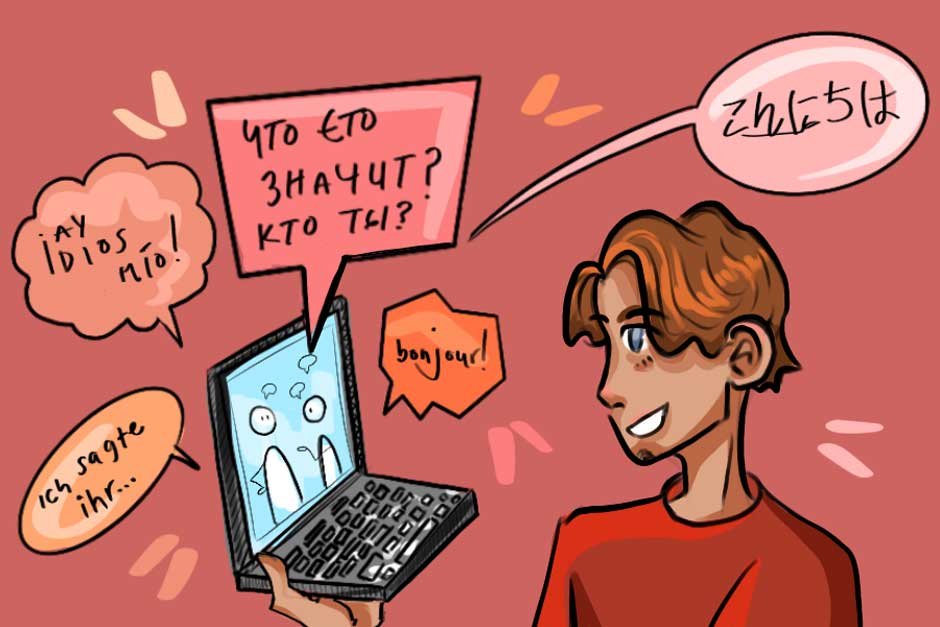Skip to the good bit
ToggleIn today’s streaming world, watching international TV series is a front-row seat to everyday life in cultures that might be entirely different from your own. Whether it’s a family drama from Lebanon, a true-crime story from South Africa, or a historical series set in the Caribbean, television offers more than just subtitles for learning a language or a culture; it brings perspective.
For diaspora communities across North America, tuning into foreign-language series on platforms, or diaspora-targeted services with on UVOtv isn’t just a hobby—it’s a way to reconnect with identity, share traditions with younger generations, and stay informed about global conversations.
From Screen to Understanding
When you watch a show produced in another country, you’re not just seeing a plot unfold—you’re learning how people speak, solve problems, celebrate holidays, and navigate relationships. The tone of the language, the details in the setting, even the food at the dinner table—these elements give cultural clues that no textbook or headline can match.
Let’s take Africa live TV channels, for example. These often include a mix of talk shows, soap operas, music videos, and current affairs. Watching them can show you not just what’s happening politically, but also what people find funny, what family roles look like, and how different regions speak and dress. It’s a snapshot of real life, broadcast in real time—and thanks to free streaming options on platforms like UVOtv, it’s never been easier to access.
Why TV Matters for Diaspora Viewers
For many second- or third-generation immigrants, foreign TV fills a cultural gap that can be hard to explain. A grandmother might watch an Algerian drama to feel close to home. A teenager in Toronto might explore Ghanaian comedies out of curiosity about their roots. For others, watching TV in Arabic, Swahili, or French reinforces language skills and sparks cross-generational conversation.
In that sense, foreign series help translate it across borders and generations. And it’s not just viewers from those countries who are watching. In a multicultural environment like North America, foreign-language series have become popular with people from all backgrounds. Subtitled shows allow broader audiences to engage with multilingual content that’s authentic and rich with nuance. Watching a Moroccan detective drama or a Sudanese social satire becomes a way to learn, empathize, and appreciate unfamiliar perspectives.
Discovering Genre and Voice
If you’ve only watched one type of series in your life—say, U.S. sitcoms or British period dramas—foreign TV can completely shift your sense of storytelling. For instance, documentaries that inspire coming from African filmmakers might cover topics like water access, youth entrepreneurship, or post-colonial identity. These are real issues, told through local lenses.
On UVOtv, you’ll find a range of free streaming content that includes culturally specific genres like:
- Family series with themes of migration and reunion
- Social dramas that reflect political tensions or economic shifts
- Faith-based content tied to religious customs or community dynamics
- Music and variety shows that showcase regional soundscapes and traditions
By offering this mix legally and free of charge, UVOtv ensures that African and Arab diaspora communities in North America can access their cultures without relying on low-quality, illegal streams, or worse, giving up altogether.
The Value of Legal, Accessible TV
Access matters. Too often, diaspora viewers rely on pirated streams or overseas workarounds that offer poor quality or limited access. Legal platforms like UVOtv solve that problem by offering free streaming of curated, culturally relevant content through AVOD (ad-supported video on demand) and FAST (free ad-supported streaming television) models.
Whether you’re watching African live TV channels for news, entertainment, or cultural connection, platforms like UVOtv provide a user-friendly, multilingual alternative that values both the filmmaker and the viewer.
And importantly, the availability of these shows encourages better cultural representation across the board—allowing stories from Cairo, Lagos, Tunis, or Khartoum to sit alongside global hits, not behind them.
Final Thoughts
Watching foreign TV series can open doors to culture, to empathy, to identity, and even to language. For the Arab and African diasporas in North America, it’s more than content; it’s a connection. It’s a way to learn where you come from—or where others are coming from.
So next time you scroll past a show from a country you’ve never been to, give it a shot. You might laugh, you might cry—but most of all, you’ll see the world differently







